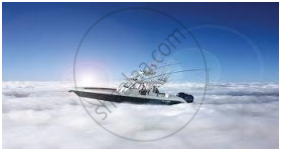Advertisements
Advertisements
प्रश्न
Divide 16 into two parts such that twice the square of the larger part exceeds the square of the smaller part by 164.
उत्तर
Let the larger and smaller parts be x and y, respectively.
According to the question :
`x+y=16` ...........(1)
`2x^2=y^2+164` ..............(2)
From (i), we get:
`x=16-y` ............(3)
From (ii) and (iii), we get:
`2(16-y)^2=y^2+164`
⇒`2(256-32y+y^2)=y^2+164`
⇒`512-64y+2y^2=y^2+164`
⇒`y^2-64y+348=0`
⇒`y^2-(58+6)y+348=0`
⇒`y^2-58y-6y+348=0`
⇒`y(y-58)(y-6)=0`
⇒`y-58=0 or y-6=0`
⇒`y=6 (∵y<16)`
Putting the value of y in equation (3), we get
`x=16-6=10`
Hence, the two natural numbers are 6 and 10.
APPEARS IN
संबंधित प्रश्न
Divide 27 into two parts such that the sum of their reciprocal is `3/20`
Divide two natural numbers, the sum of whose squares is 25 times their sum and also equal to 50 times their difference.
The sum of a number and its reciprocal is `2 1/30` Find the number.
The sum of the ages of a boy and his brother is 25 years, and the product of their ages in years is 126. Find their ages.
A train travels 180 km at a uniform speed. If the speed had been 9 km/hr more, it would have taken 1 hour less for the same journey. Find the speed of the train.
A train covers a distance of 90 km at a uniform speed. Had the speed been 15 km/hr more, it would have taken 30 minutes less for the journey. Find the original speed of the train.
A train travels at a certain average speed for a distance 63 km and then travels a distance of 72 km at an average speed of 6 km/hr more than the original speed, If it takes 3 hours to complete total journey, what is its original average speed?
Write a quadratic polynomial, sum of whose zeros is \[2\sqrt{3}\] and their product is 2.
A train travels at a certain average speed for a distance of 63 km and then travels a distance of 72 km at an average speed of 6 km/h more than its original speed. If it takes 3 hours to complete the total journey, what is its original average speed?
The speed of a motorboat is 20 km/hr. For covering the distance of 15 km the boat took 1 hour more upstream than downstream.


Which is the correct quadratic equation for the speed of the current?
